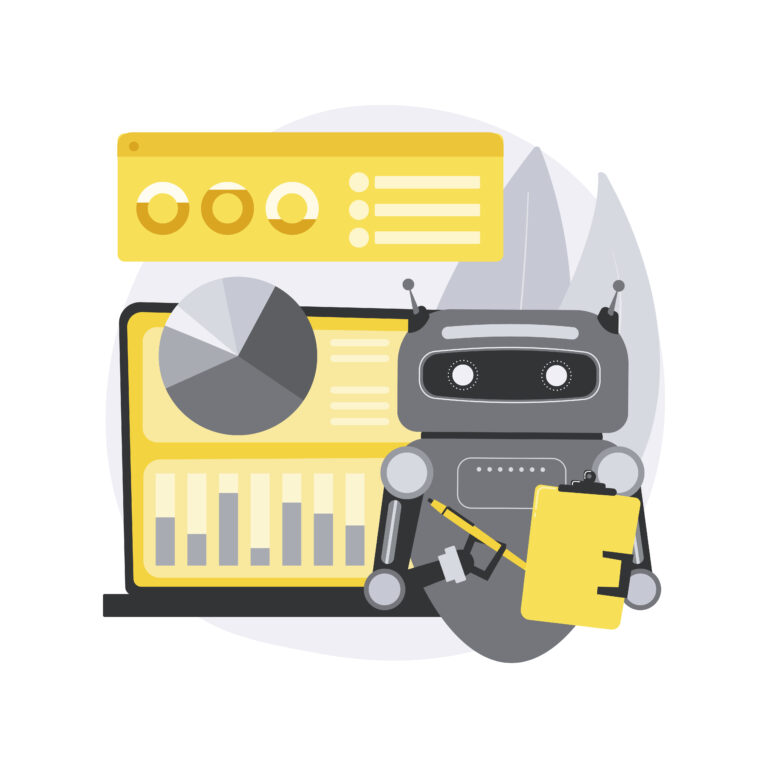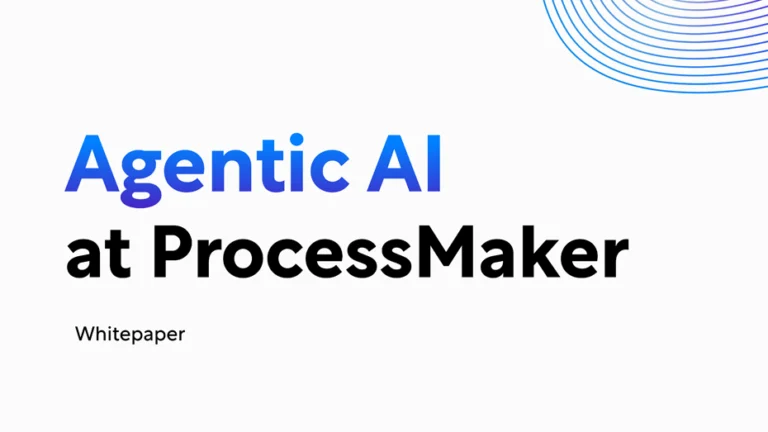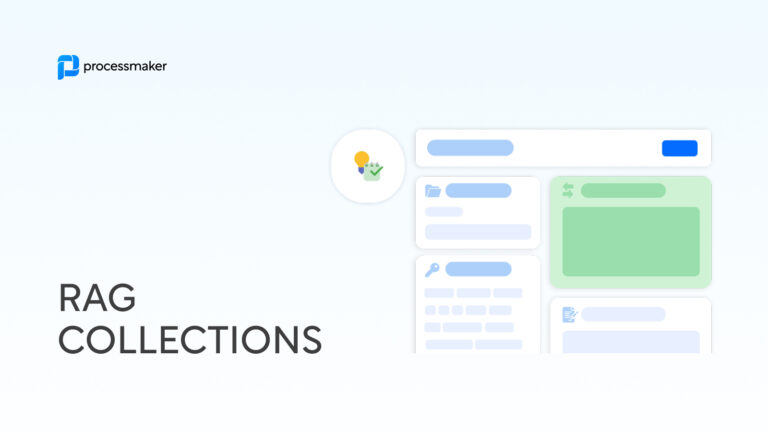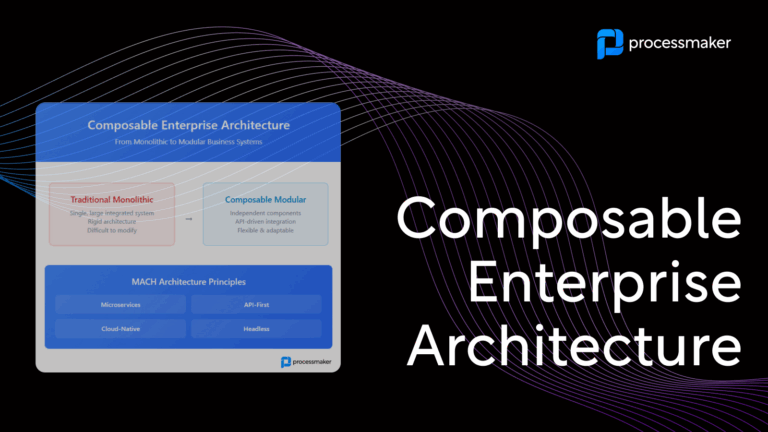Can you go one day without hearing about Artificial Intelligence (AI)? It feels like we hear about AI all the time, and while robots aren’t taking over the world, they are integrating themselves into the workplace. Artificial intelligence and process automation are coming together to reshape the business landscape. And it’s no surprise: from smart homes to smart speakers and smartwatches, it seems like everything is turning into a brainiac. AI and process automation join forces to forge a new acronym, intelligent process automation (IPA), to turn your business into a smart organization. IPA is a technology capable of learning from data, understanding patterns, making decisions, and automating complex tasks far beyond the capabilities of traditional workflow management. Here are three areas of business process automation AI is already shaking up.
Empowering decisions
The artificial intelligence component of IPA enables systems to analyze and understand complex datasets, providing insights and predictive analytics that can inform strategic decision-making. AI is a prime way to combat big data—an issue overwhelming 95% of businesses.
Big data is an issue steadily plaguing businesses since the dawn of Web 2.0. But apps and endless social media feeds are just the beginning. The Internet of Things (IoT) is poised to open a new set of data floodgates.
IoT tags a sensor onto physical goods collecting thousands of data points from refrigerators, trucks, and even Brita water filters. In 2012, the guardians of all things internet opened up 340 undecillion new IP addresses, enough to give one to every grain of sand on the planet—and still have enough to give one to every star in the known universe. But on a practical level, the decision permitted innovators to onboard everything from smart washing machines and thermostats to the information superhighway.
As Harvard Business Review forecasted in 2014, IoT will force organizations to reexamine their core offering, prompting the question, “What business are we actually in?” Every company, despite its industry or market, is now a data company.
A 2020 acquisition by Lululemon, the famous purveyor of yoga pants, underscores the shift. The retailer picked up Mirror, an interactive device that walks users through various workouts—while Lululemon walks away with an invaluable trove of insights into consumer fitness habits. In the same vein, Amazon’s Roomba acquisition was a head-scratcher for outsiders. But if you look through an IoT lens, you’ll see the benefits of mapping the layouts of millions of homes.
As businesses collect more and more IoT data on consumer habits, manual analysis will become impossible to manage. Enter IPA, which will play infinite roles in IoT.
IPA will chime into automated workflows to provide valuable insights into finance, marketing, accounting, and more. In transportation, AI can reroute a fleet of trucks around poor traffic or weather conditions. Internet-connected accelerometers and gyroscopes point out erratic drivers that must be pulled aside for retraining.
We’ll see AI weaving into automated workflows to:
- Draw the shades in an office building when the sun hits
- Schedule appointments for medical procedures
- Identify ideal customers for new banking services
- Comb through resumes to identify top candidates
- Improve inventory planning
- Flag potentially fraudulent bank transactions in real-time
- Reach out to customers most likely to buy a new product
At the heart of decision-making is AI software, turning the deepest trove of data into useful, actionable decisions.
Improving the customer experience
AI-driven process automation can tailor a more personalized customer experience. And it will go well beyond typical headline-grabbers like chatbots.
Businesses have a long history of turning internal data into a customer-facing benefit. Think of FedEx. Tracking numbers started as a form of internal quality control. They flipped this innocuous data snippet into a competitive advantage (one we can’t live without!)
Brinks (the armored trucks featured in every crime heist movie) extends their high-security mission into smart homes, too. The Brinks team used AI to expand on A/B testing marketing messages. Instead of floating a handful of daily ideas, AI boosted the trials to 50,000 per day. Hyper-personalized messages and improved cross-selling, helping them boost average order values significantly.
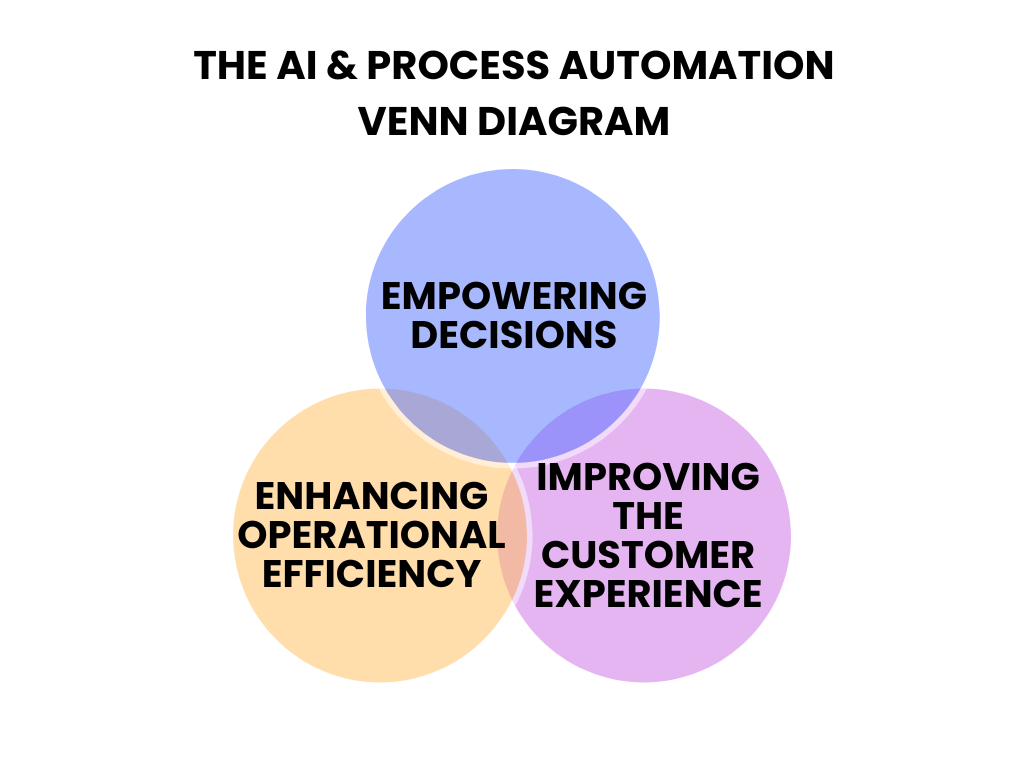
Personalization through data is no small feat. It typically requires aggressive coordination between departments and across channels, known as process orchestration. Bringing all the data together used to be a secret sauce reserved for behemoths like Google. But AI’s expanding accessibility now welcomes smaller players into the market, too. Intelligent automation platforms focusing on process orchestration are the sweet spot here.
Future-forward marketers already tout AI-charged examples: AI can create ad-hoc website headlines based on each visitor’s habits and preferences. Other tech companies, like Spotify, not only use AI to curate groove-inducing playlists but are testing a generative-AI DJ to usher in each track.
Artificial intelligence will help organizations find exciting, unexpected, and for some consumers—uneasy—marketing opportunities. Traditional marketing software might help a company trigger outreach based on a strict set of rules. Send an email three days after an abandoned cart. Prompt users to join a rewards program once they’ve spent $1,500. AI doesn’t need a specific recipe—it can identify outrageously valuable trends we never planned to track. As the U.S. Secretary of Defense Donald Rumsfeld coined, the world is full of “unknown unknowns”—things we didn’t even think to look for. In process automation, AI is the extra set of eyes organizations need to uncover them.
Enhancing operational efficiency
IPA systems can handle many tasks, from simple data entry to complex decision-making processes. They learn from their experiences, improving their performance over time. AI-infused process automation is an excellent surveyor, peeking into workflows to find ways to get things done faster and with fewer errors.
You’ll find AI boosting efficiency through:
- Predictive analytics: Traditionally, companies rely on the reporting process to seek opportunities and home in on threats. But the very act of compiling a report puts companies behind the 8-ball. AI shortens the timescale of data analysis. What used to take weeks or months to uncover now comes to light in a matter of minutes.
- Automating tasks: AI is upending data entry. Repetitive and time-consuming tasks slide off human to-do lists and onto AI’s plate. Google wants to rebrand spreadsheets’ bad rep with Duet AI, a new set of tools that’ll help populate cells and craft formulas based on plain-speak. Intelligent document processing ingests documents like invoices and applications and releases that information for use in automated workflows.
- Low, low, LOW Code: Even low-code process automation software requires a little tech know-how—experience in query languages like SQL is usually a plus. Now, intelligent automation platforms like ProcessMaker drop syntax-heavy code in favor of ChatGPT-style conversation. (Something you can learn more about here!)
Overall, AI is a proficient learner. It will monitor processes in real-time to identify opportunities for operational improvement. Data logs, app usage, customer decisions, bottlenecked tasks—AI can assess activity from all corners of your organization. Seemingly disconnected behaviors become insights ready for your team to take advantage of.
The convergence of AI and process automation is not an endpoint—but a stepping stone to even more advanced technological integration. We’re on the cusp of an era where autonomous systems will execute tasks and identify opportunities for process improvements, creating a continuous cycle of optimization and learning.
Still wrapping your head around AI? We’re here to help. Chat with one of our experts for more insight into how your company can benefit from AI and process automation.
